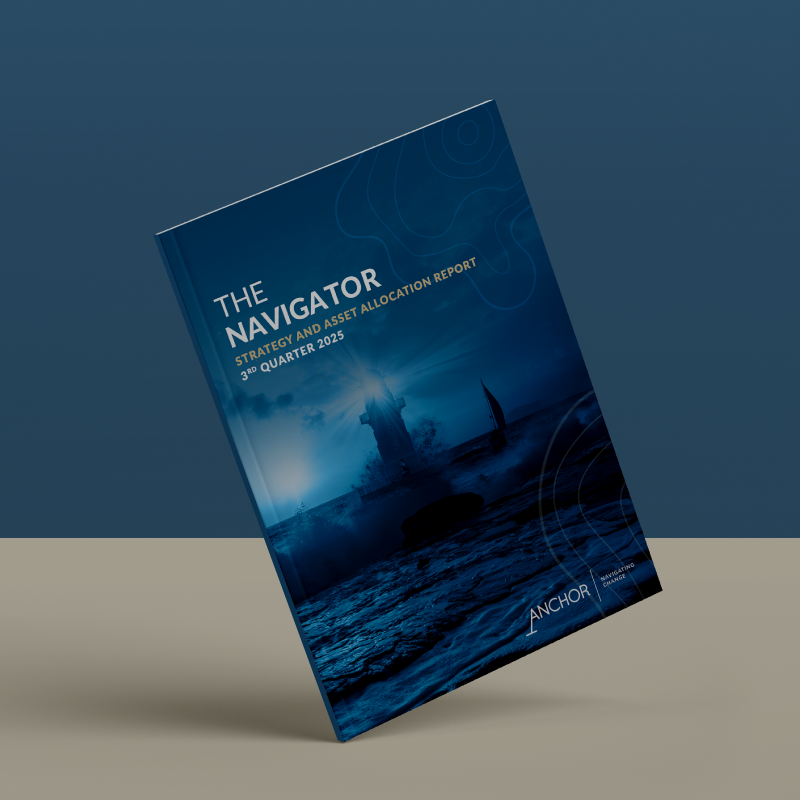Control your emotions! Emotions are the enemy!
Googling the phrase “quotes about emotions and investing” yields just over 2.2mn results. Click on any of the links, and you will find endless quotes extolling the virtues of rationality and warning against the evils of emotions. This wisdom, passed down through the ages and backed by the field of behavioural finance, is an incontrovertible fact.
Except … it is not.
Research from the field of neuroscience reveals that emotions, far from being an unnecessary distraction, are a critical component of all decision-making. According to neuroscientist Antonio Damasio, we would struggle to make the simplest decisions, like choosing breakfast cereal, without emotions. Denise Shull, a trading coach and author with a background in neuropsychoanalysis, goes a step further. Shull contends that we make decisions based on a prediction of future emotions. I buy a share because I anticipate feeling happy after it goes up. I sell a share because I anticipate feeling relief after it falls, and I no longer hold it. This is a by-product of our brain’s primary purpose: to keep us safe.
Even though we believe we are making rational decisions based on hard data, Shull has a different take: “You think you make a decision based on some analysis. You don’t. You make the decision on how you feel about the analysis, your confidence in the outcome that you’re predicting.”
Signal in the spasm
Emotions can be extremely useful. One example is intuition, a form of pattern recognition based on experience. Sometimes investors have a sense that ‘something is off’, even if there are no hard facts to support that view. This sense of knowing may even manifest physically. Robert Soros said the following about his father, legendary hedge fund manager George Soros: “My father will sit down and give you theories to explain why he does this or that. But I remember seeing it as a kid and thinking … at least half of this is BS; I mean, you know the reason he changes his position in the market or whatever is because his back starts killing him. It has nothing to do with reason. He literally goes into a spasm, and it’s his early warning sign”.
Intuition and gut instinct are not the same. The former is domain-specific based on experience, while the latter has no such grounding. A novice investor may think he knows what is coming next but has no basis for that view. Unfortunately, intuition is often seen as flaky and unserious. Hard facts and data are regarded as robust, intuition is not.
Occasionally an investor will have a gnawing sensation that a stock is not acting as it should. For example, a company will release strong financial results or announce the launch of a new product, but instead of rising, the stock sells off on the news. The investor has a vague sense of unease but does nothing, as no facts suggest his thesis has changed. The stock then falls 20%, prompting the investor to rework the numbers, which confirms that the story is unchanged. This process repeats for every 20% the stock falls until the company announces a significant deterioration in its financial results. The investor plugs the new scenario into his model, at which point the numbers no longer support the investment. Anticipating the embarrassment of looking like an idiot, the emotion becomes too great, and the investor capitulates, selling the stock. This ends up being at or close to the bottom. In the post-investment review, the lessons are usually: “I let my emotions get the better of me. I need to be more disciplined/patient/rational. I should not change my numbers based on market sentiment.”
This scenario is all too common. Ironically, while emotions are cited as the enemy, listening to the emotional warning signs far earlier in the process would have prevented substantial pain. But how can we distinguish between the first emotion (intuition) and the second (panic)? This is a function of urgency. With intuition, we have a sense of unhurried knowing; contrast this with the feeling of being compelled to do something this instant (Buy! Sell!).
Debunking emotional dogma
The economist John Maynard Keynes said, “Practical men who believe themselves to be quite exempt from any intellectual influence are usually the slaves of some defunct economist.” Keynes’ quote could be readily applied to investing. The famous investors who talk dismissively about emotions are not necessarily wrong per se, but I suspect they may have lower emotional capacity than the average person. If you do not feel anything (including pain), there is nothing to control. For the rest of us, attempting to follow in their footsteps is almost impossible, not to mention counterproductive.
Put together, we have a situation where society and the established investing dogma (which can be quasi-religious) put investors in a position where they are constantly experiencing internal conflict and reinforcing the wrong lessons in a vicious circle.
What is the solution? According to Shull, simply recognising, naming and writing down our emotions (both present and anticipated) when making decisions has tremendous power. For example, when buying XYZ stock, I might say, “I’m feeling FOMO (fear of missing out), and I think I’ll feel relieved and happy after it rises”. Just writing that out may cause me to rethink the trade or start with a smaller position. Alternatively, I may take the trade, but if I notice a pattern where I write about FOMO three times in a row and every trade fails, I will be less likely to do so the fourth time.
Listening to our emotions in other contexts is also helpful. For example, perhaps we are angry at ourselves for making a series of poor choices that led to a bad investment. Instead of brushing our feelings aside, we should channel that anger into researching those decisions and looking for ways to improve.
Digging deeper, discovering your ‘why’
Understanding markets and the role of emotions is a good start, but it only scratches the surface. Jesse Livermore was among the greatest traders of all time and understood the psychology of markets and the human condition, noting, “Successful trading is always an emotional battle for the speculator, not an intelligent battle.” Livermore was the basis for the main character of the book Reminiscences of a Stock Operator, which to this day is compulsory reading for aspiring traders. Livermore made and lost several fortunes, with an estimated peak net worth of US$100mn (US$1.5bn in today’s money). Sadly, Livermore could not overcome his demons and committed suicide on Thanksgiving Day in 1940, his note to his wife talking about his sense of failure and unworthiness.
Many investors may need to delve deeper into their psyches and journey into their past to solve the root causes of their problems. These often stem from our childhoods and relationships with parents, which form the basis for all subsequent relationships with others, the world, and even ourselves.
Investing is one of the most psychologically taxing pursuits (even more so with the added burden of managing other people’s money and being measured daily). Yet, 80 years after Livermore’s passing, investor Charles Harris recounts his incredible story with unusual candour and vulnerability (A Trader’s Journey: Charles Harris). At one stage, Harris had converted a few thousand dollars starting stake into several million for a cumulative gain of over 100,000%. But a series of inexplicable mistakes saw his account drop by over 80% from its peak, causing immense stress and, eventually, the end of his marriage after 27 years.
The whole video is worth watching for those with more than a passing interest in investing, but the crux of the story starts around the 1-hour 16-minute mark. Harris asks, “How does a person who is clearly so capable of succeeding in the markets, and who was able to achieve spectacular heights, end up sabotaging himself with a string of bad choices that fly in the face of everything he knows and everything he teaches? Why did I break every rule in the book? I sabotaged my success because, deep down, I didn’t feel I deserved it. I didn’t feel worthy. How I felt on the inside wasn’t matching up with how I was doing on the outside, so unconsciously, I did something about it and put the two in line.”
Harris goes on to talk about his search for worthiness and finding meaning in relationships rather than money and status. Later he makes a key observation, “Anyone can figure out what they’re doing wrong, but figuring out why is another thing entirely.”
Hopefully, it is apparent that while the topic of emotions is highly relevant to investing, it also has broader applicability. With that in mind, I will leave the parting words to Shull: “Don’t judge yourself. Just don’t judge yourself. Stop being self-critical, stop self-doubting. Just try to understand what you’re feeling, why you’re feeling it, and look for that information.”
At Anchor, our clients come first. Our dedicated Anchor team of investment professionals are experts in devising investment strategies and generating financial wealth for our clients by offering a broad range of local and global investment solutions and structures to build your financial portfolio. These investment solutions also include asset management, access to hedge funds, personal share portfolios, unit trusts, and pension fund products. In addition, our skillset provides our clients with access to various local and global investment solutions. Please provide your contact details here, and one of our trusted financial advisors will contact you.




